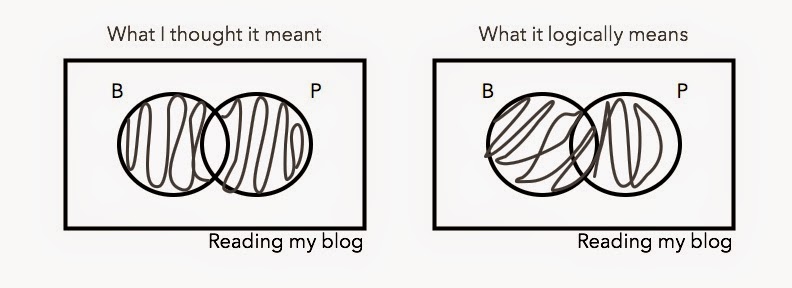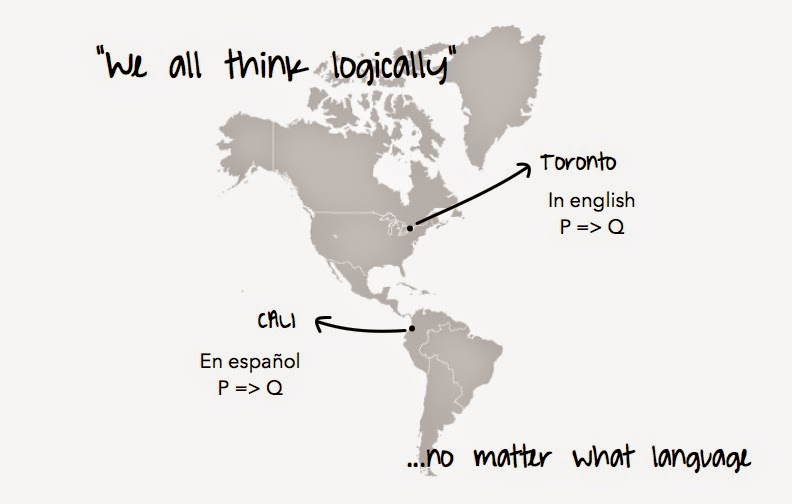At this point of the course, my best isn't enough. I keep trying, and I try hard but it is not enough. I have met with friends, and I get the basic concepts. I understand the ideas, the proof structure. However, I do not feel ready for a final, and I am very insecure about the midterm.
Conjunction problem
For me it is still unclear what one should do when proving a conjunction. When one has an implication one knows that is it proven when from P you get to Q. Nonetheless, it is not clear to me how do I prove a conjunction or even a disjunction. I think, or I will assume -in conjunction- that both must be true in order to prove it true, and in disjunction I will assume that as long as one of components of it is true then the whole statement is true. I will do more research, and I will try and study even harder in order to do well on this course.
Assignment 2- Challenges
It has been a challenging assignment. Especially questions 1.2, and 1.3. They were based on the delta upsilon definition which for someone who hasn't taken mat137 may seem somehow intimidating. Moreover, this courses seems to favour those who have math knowledge which I consider pretty unfair. I know, this comment will get nowhere. I thought, anyway, it was important to mention. This is going to be the end of this post. No more, No more.
Logically 165 times
Friday 31 October 2014
Friday 17 October 2014
Chinese
Sometimes we think we can achieve so many things. We like to strive for success, and that is a good thing to do. However, we sometimes do not recognize the importance of failure. Sometimes it is good to fail, it is good to make sure that we are not always right. It helps us to realize that the world isn't just abouts ourselves. There is more to it that our own reasoning.
Proofs can be challenging, and could also make us believe about success or failure. Moreover, they are a completely new language. Not an easy one, for me it can be compared to Chinese. It is nothing similar to any language I speak. As I may find Chinese interesting, I would not like to learn it. Why would I like to learn a language that is so complicated? I have no interest in going to China for more than a month. However, I need to speak proofs, apparently it will get me into the Computer Science major.
I do not want to learn proofs, I find them abstract, complicated, and hard to learn but I have to. Hopefully, I will find them useful in my career. I guess there is an importance to it since we have to learn it in school. However, why do we do this courses mandatory? We should just have the passion to learn what we want.
Proofs can be challenging, and could also make us believe about success or failure. Moreover, they are a completely new language. Not an easy one, for me it can be compared to Chinese. It is nothing similar to any language I speak. As I may find Chinese interesting, I would not like to learn it. Why would I like to learn a language that is so complicated? I have no interest in going to China for more than a month. However, I need to speak proofs, apparently it will get me into the Computer Science major.
I do not want to learn proofs, I find them abstract, complicated, and hard to learn but I have to. Hopefully, I will find them useful in my career. I guess there is an importance to it since we have to learn it in school. However, why do we do this courses mandatory? We should just have the passion to learn what we want.
Friday 10 October 2014
THE STRUCTURE
Proof Structure
This is something completely new for me. I have taken math, but the proofs were different as how I am being taught at the moment. The structure is very straight-forward, it is based on indentation...and so is python! Anyway, one could organize ones' structure however one wants. I notice that I like to start from the top, and then write the next line a the bottom, but the problem is that I would not know until what point I will run out of space.
Here is the basic structure:
Assume .........
Assume.......
Let (here you define your variables)
Prove! (here you do the proof!)
Then... (you show that you assumption is valid)
Then ... (here, you have proven the whole statement)
Well, as of now I know the structure but am I yet able to do proofs?
...with this question and 13.75 times, I will leave this post today!
Friday 3 October 2014
At all once
This week my post will be very basic, as I'd rather spend more time studying for the midterm on tuesday. I have finished the assignment 1, from it I have learned a lot, and at the same time I am concerned about many concepts that I haven't been able to understand completely. One of these is:
Vacuous Truth, so it is basically when the precedent is negated then it is implied that the implication is a vacuous truth. But what does this really mean? Is it that then there is always truth? Well, if the antecedent is empty then we can assume that this implication is vacuously true. Therefore, there is no counterexample because the antecedent is an empty set.
Furthermore, it is very difficult for me to translate english into symbolic logic. I think there are disparities between these two. I think we haven't been taught properly how to be better at this either. Anyway, I am not here to criticize but I think it would be more helpful if we had a weekly extra exercises that we could use for extra studying.
Well, sorry this week's post is so short but I think I need this time to prepare better for the midterm. I will be posting something more interesting next week.
Add now 13.75 times for this post.
Friday 26 September 2014
27.5 Times
15.75
_____SOMETHING NEW
I realized that language and logic aren't particularly best friends. Our normal usage of language allow us to communicate most of the time, efficiently. However, language can be ambiguous. Sometimes we use quantifiers, and they do not necessarily mean what they mean in logical terms.
"THERE IS AT LEAST SOMEONE BORED ENOUGH, OR GETTING PAID, WHO READS MY BLOG"
So, in logical terms this could mean:
16.75) There is at least one person who belongs to the set of "Bored Enough" who reads my blog.
17.75) There is at least one person who belongs to the set of "Getting Paid" who reads my blog.
18.75) And the negation of this, logically, would be that there is no one who is bored enough or is being paid who reads my blog.
20.75) So, look at the following Venn Diagrams:
21.75) Crazy, eh!? There could be someone who reads my blog who is bored enough, and who is getting paid. If you think about it though, you could be somehow being paid for doing something else, and you are bored enough to be reading my blog. However, in the universe of logic, you can be both, and reading my blog.
22.75) In English, the previous statement would mean that that someone reading my blog, yeah, YOU! are reading it ONLY because you are bored enough or because you are getting paid for reading it.
Anyway, listen to the following advice (worth the last 5 'times' of this post):
DO NOT TRANSLATE ENGLISH INTO LOGIC, THINK LOGICALLY!
Friday 19 September 2014
13.75 TIMES
First, let me introduce myself using some logical concepts. And, in oder to make it more interesting you should try identifying if the following points are: [S] Sentences, [T] Statements, [P] Predicates, or [I] Implications.
1. My name is Julian Garcia, and I am originally from Colombia. [S] [T] [P] [I]
2. I have taken a logic course in Colombia, at ICESI University. [S] [T] [P] [I]
3. If I haven't done one year of Uni in Colombia, I wouldn't have gotten into UofT. [S] [T] [P] [I]
4. Whenever I think of logic, I do it in Spanish. [S] [T] [P] [I]
5. I think my english is sufficient for doing well in CSC165. [S] [T] [P] [I]
6. I've put some thought into making this image, some of you may like it. [S] [T] [P] [I]
7. Everybody in the Americas think logically. (?) [S] [T] [P] [I]
8. At least one person knows that P => Q means the same in any language. [S] [T] [P] [I]
Before we continue with the next 5.75 points, think about this:
S(x) : x speaks spanish
T(y) : y has not taken any logic course in english
9. S(Julian) ^ T(Julian). [S] [T] [P] [I]
10. Julian speaks spanish. [S] [T] [P] [I]
11. I am also learning German, and it is fun! [S] [T] [P] [I]
Here, a diagram...
CSC165: The universe of all csc165 students
C: The set of all students who come from Cali, Colombia.
P: The set of all students who are majoring in Political Science.
12. I forgot to tell you, I am majoring in Political Science. [S] [T] [P] [I]
13. If you're good with Venn Diagrams, then you should know where I belong there. [S] [T] [P] [I]
+0.75 If you want to contact me, then send me an e-mail to jugar@gmail.com. [S] [T] [P] [I]
Subscribe to:
Posts (Atom)


